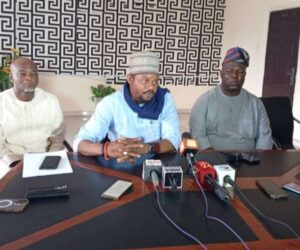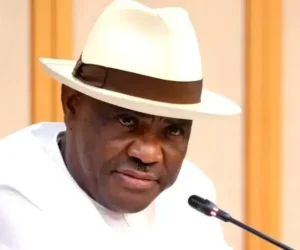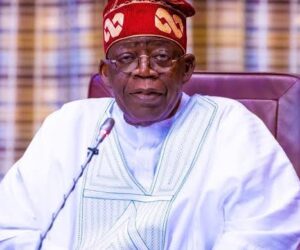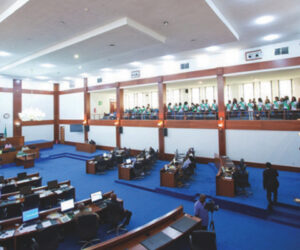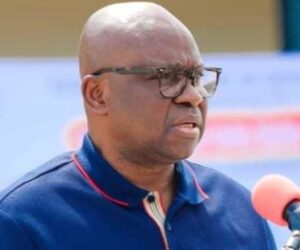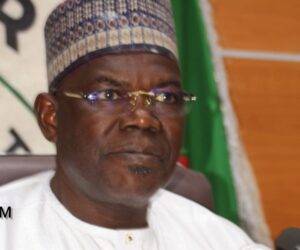1
Deputy Chairman of the House Committee on Media and Public Affairs, Rep. Philip Agbese, has declared that the 10th House of Representatives has already outperformed the targets of its four-year Legislative Agenda within only two years of operation.
Agbese made this assertion while reacting to a recent report by AdvoKC Foundation, which accused the 10th Assembly of falling short in delivering on its June 2023–2027 agenda.
He dismissed the criticism as a misrepresentation of reality, insisting that under the leadership of Speaker Tajudeen Abbas, PhD, GCON, and Deputy Speaker Benjamin Kalu, PhD, CFR, the House has achieved remarkable results that surpass projections.
“That claim is simply untrue. We have gone beyond the agenda in under two years. We welcome fair assessments, especially critical ones, but it is only right to put the facts straight. This House, populated by intellectuals and guided by academics like Abbas and Kalu, has delivered beyond expectations,” Agbese said.
The 10th House’s Legislative Agenda (2023–2027) is centered on eight focal areas: governance reform, security enhancement, legal restructuring, economic growth, social sector reform, inclusion, transparency in parliament, and environmental sustainability.
According to Agbese, the lawmakers have not only implemented these priorities but also gone further, citing record-breaking legislative productivity.
From June 2023 to March 2025, over 2,100 bills were introduced, 198 were passed, and several signed into law by the President. The House’s first session alone saw 1,351 bills presented and 89 passed, equaling the benchmark set by the 7th Assembly.
Key legislations include the Defence Industries Corporation of Nigeria Act, Control of Small Arms and Light Weapons Act, Student Loans Act, Cybercrime (Amendment) Act, Electricity Act (Amendment), National Anthem Act, Federal Audit Service Bill, the ₦70,000 National Minimum Wage Bill, and four tax reform bills.
In addition, the House convened 502 committee meetings, 57 oversight visits to Ministries, Departments, and Agencies (MDAs), and 31 investigative hearings to reinforce accountability.
Agbese further pointed to reforms that promote transparency and inclusivity, especially Speaker Abbas’s Open Parliament initiative.
He explained that the House has hosted citizens’ townhalls on electoral reforms, youth policy summits, national dialogues on state policing, and retreats on reforms such as the Petroleum Industry Act and tax modernization.
“Through the Open Parliament project, Speaker Abbas has ensured that Nigerians are active participants in the legislative process. This has strengthened both inclusivity and public confidence in our work,” Agbese stated.
He added that in March 2025, lawmakers collectively donated half of their salaries for six months, totalling ₦705 million, to support President Bola Tinubu’s relief programme for vulnerable citizens.
On fiscal priorities, Agbese revealed that the House allocated ₦6.11 trillion (11.1% of the 2025 budget) to the security sector, demonstrating responsiveness to national challenges.
Agbese also highlighted the ongoing constitution amendment exercise spearheaded by Deputy Speaker Kalu, with extensive nationwide consultations.
Among the most notable reforms under review is the Reserved Seats for Women Bill. Sponsored by Deputy Speaker Kalu, the bill has enjoyed strong backing from both him and Speaker Abbas, who are pushing for its passage after the legislative recess.
Their advocacy, Agbese noted, reflects the House leadership’s commitment to correcting historical gender imbalances in political representation.
While recognizing that Nigeria continues to grapple with security and economic concerns, Agbese insisted that the House has consistently delivered impactful outcomes through lawmaking, oversight, and public engagement.
“We remain The People’s House, using legislation, motions, and oversight to faithfully serve Nigerians. Our work should be judged not only against theoretical ideals but against the tangible progress achieved across every area of the agenda. The truth is, the 10th House of Representatives has met, and in many cases exceeded, its mandate within less than two years,” he concluded.


